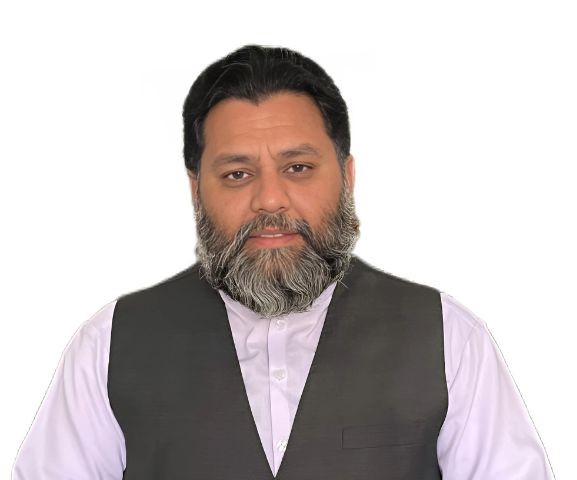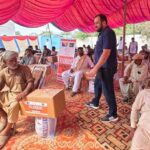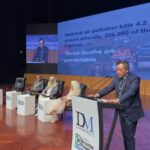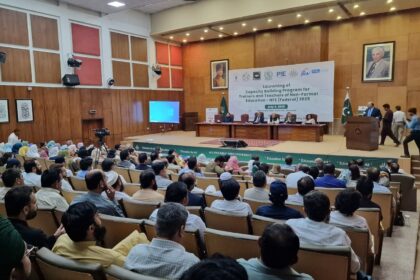What Is the Fault of Rawalpindi and Islamabad’s Citizens?
By: Zaheer Ahmed Awan
For the past two days, the citizens of Rawalpindi and Islamabad have been virtually imprisoned in their own
homes. Roads are blocked, containers have sealed off main routes, educational institutions are closed, and
the entire routine life has come to a standstill. The scene looks no less than a war-like situation. The question
arises — what is the fault of these innocent citizens? Is a peaceful protest supposed to paralyze an entire
city? The failure of planning and lack of foresight by the government, combined with the rigidity of political
leadership, always results in public suffering. Schools, colleges, and universities are closed; examinations
have been postponed; public transport is suspended; and emergency services are almost non-functional.
Even in times of war or under curfew, basic humanitarian considerations are maintained. Ambulances,
Rescue 1122, fire brigades, and sanitation vehicles are never stopped. Islamic teachings also emphasize
mercy and humanity — even in warfare, children, women, the elderly, patients, trees, and water sources must
be protected. International humanitarian laws uphold the same principles. Unfortunately, in our peaceful
times, our citizens are deprived of these very fundamental rights. With mobile networks suspended, highways
sealed, and transport halted, laborers, street vendors, rickshaw and taxi drivers, shopkeepers, students, and
patients are all helpless. Daily wage earners, who feed their families from hand to mouth, now struggle to
even buy bread for their children. The entire city has become a picture of despair. This is not a protest
anymore — it has turned into a humanitarian crisis. Protesting is a democratic right, but it should never
translate into collective punishment for the public. A peaceful protest means raising one’s voice without
violating the rights of others. Unfortunately, here the government closes the roads and cuts off
communication, while the protesters respond with anger, property damage, and clashes with law
enforcement. Poor planning and mismanagement by the authorities often turn peaceful protests into violent
demonstrations. When tear gas, baton charges, arrests, and FIRs become the first response, the result is
more chaos and destruction. The damage to public and government property is ultimately a loss to the people
themselves. This is the time for the government, political leaders, and state institutions to act wisely. Violence,
arrests, and use of force are never the solution. The only way forward is dialogue. All parties must sit
together, talk, and find a peaceful solution — this is the true essence of democracy. It is the constitutional
duty of the government to protect the basic rights of citizens. According to the Constitution of Pakistan:
Article 15 guarantees freedom of movement. – Article 16 allows citizens to assemble peacefully. – Article 19
ensures freedom of speech and expression. Sadly, under the current circumstances, all three rights seem
suspended. People cannot move freely, cannot express themselves, and cannot even earn their livelihood.
The government must develop a clear emergency and protest management plan. 1. Alternative routes should
be announced in advance. 2. Emergency corridors for ambulances and rescue services must remain open. 3.
Educational institutions and parents should receive prior notifications. 4. Relief arrangements should be made
for daily wage earners and low-income workers. 5. Political parties should be made responsible for ensuring
that public life remains functional during protests. In developed countries, protests are conducted in an
organized and peaceful manner. In the United Kingdom, designated protest zones are defined and
coordinated with the police. In Germany, no protest can be held without a prior permit. In Canada, emergency
green lanes remain open during demonstrations to allow ambulances and fire trucks to move freely. These
global examples prove that if there is political will, protests and public convenience can coexist. Pakistan can
also adopt such models to strengthen democracy and protect citizens’ rights. It is time for both the
government and the opposition to realize that this country belongs to all of us. The very people who are now
suffering are the ones who vote, pay taxes, and keep the system running. To repeatedly cripple their lives in
the name of political showdowns is unjust and undemocratic. If the government does not want to lose the
confidence of the people, it must act immediately — open the roads, restore normalcy, initiate dialogue, and
ensure the protection of fundamental human rights. Peaceful protest is every citizen’s constitutional right, but
collective punishment of the public is unacceptable. Roads should not be blocked; they should remain open
— because these roads are the lifelines of our people, their work, their education, and their hope for a better
future.











